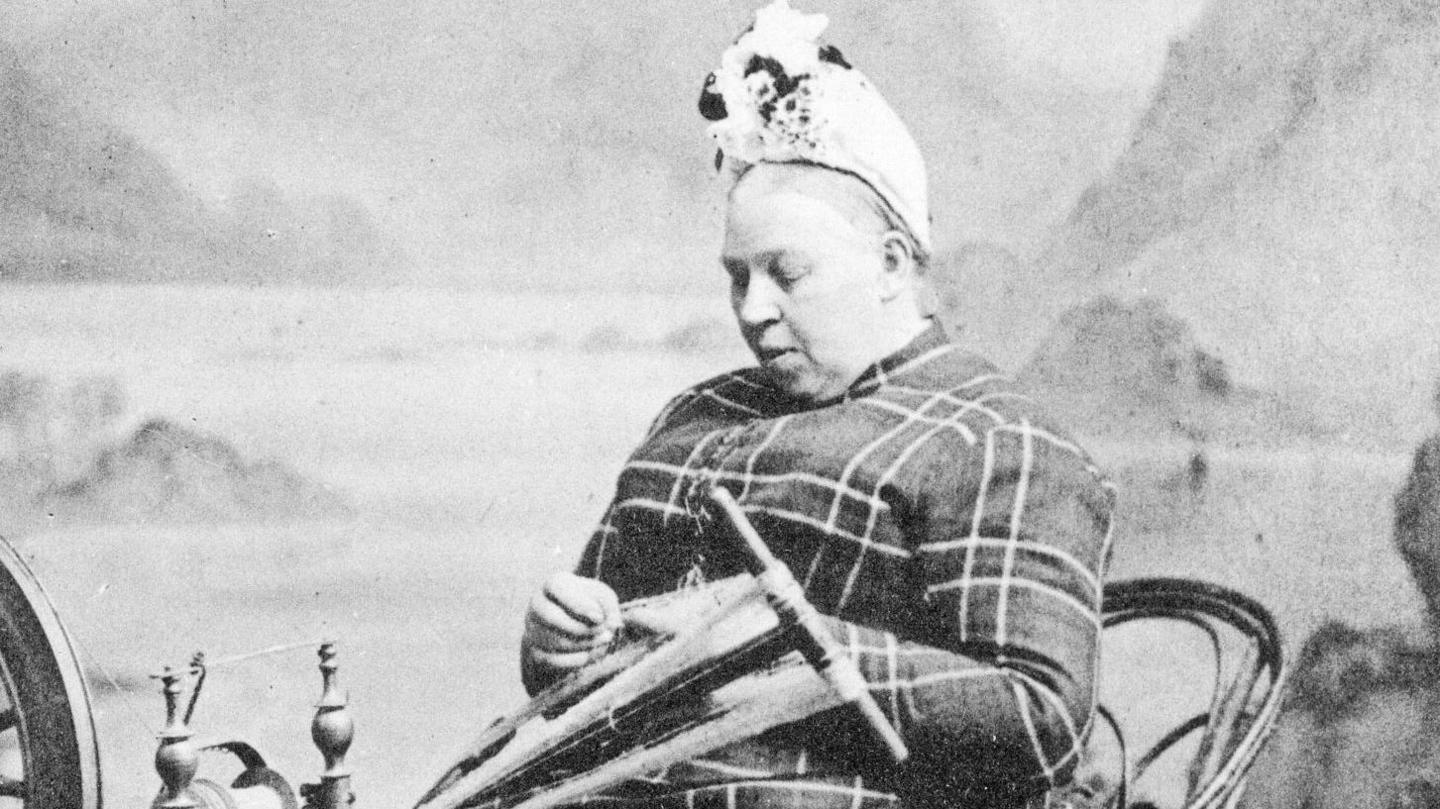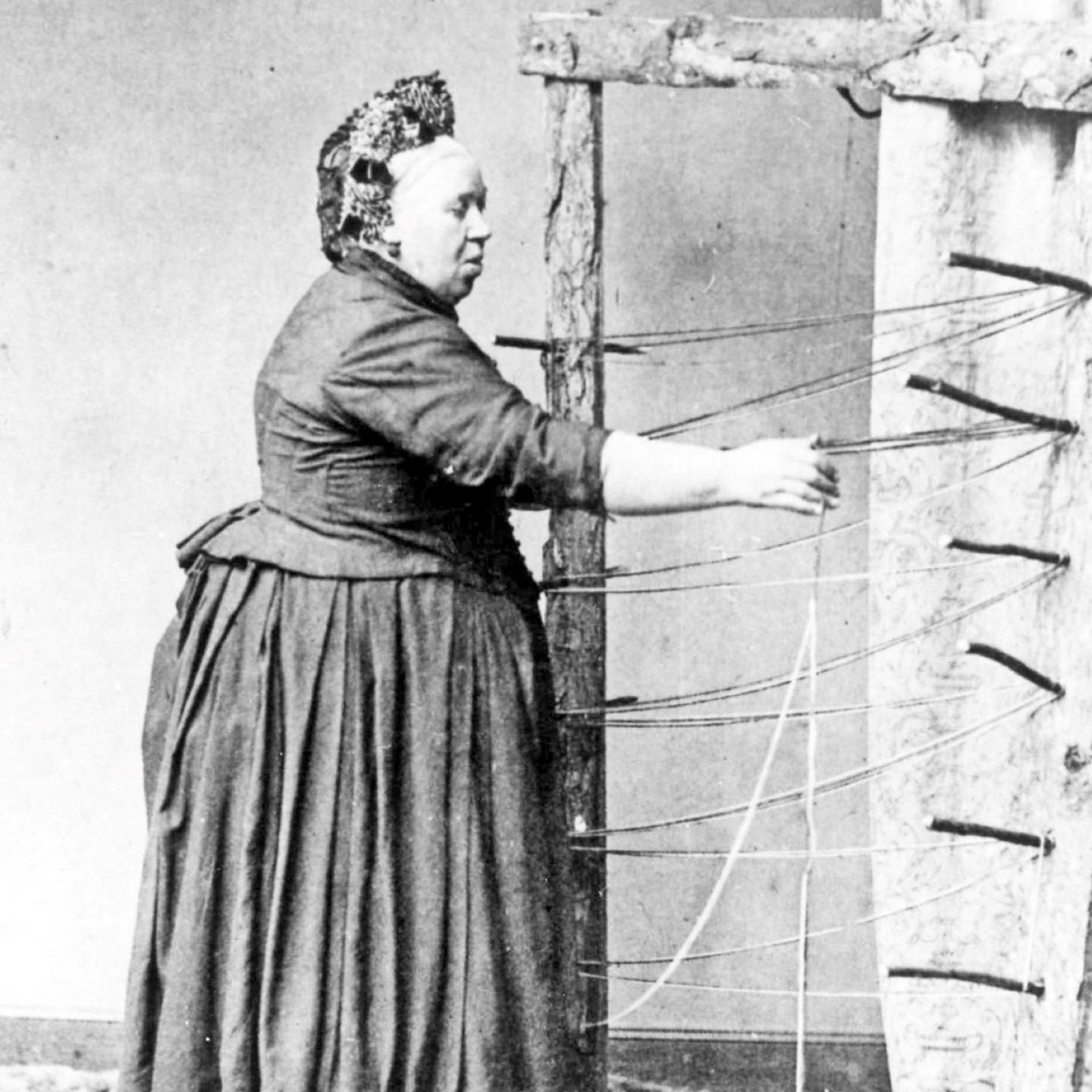New artwork to celebrate Gaelic protest poet

Màiri Mhòr nan Oran - Great Mary of the Songs - wrote poems about the Highland Clearances
- Published
A new artwork is to be commissioned to celebrate a Gaelic poet whose poems highlighted the impact on rural communities of the Highland Clearances and Crofters' War.
Màiri Mhòr nan Oran - Great Mary of the Songs - was born in Skye in 1821 and lived in Inverness, Glasgow and Greenock.
When she was 50 she was accused of theft and jailed for 40 days, but her supporters claimed the allegations were false.
During the Clearances, landowners removed people from land where families had lived for generations to make way for large-scale farming operations. Some of the resistance to these evictions became known as the Crofters' War.
Gaelic cultural charity Cultarlann Inbhir Nis and The Gaelic Society of Inverness have secured funding to offer artists a £5,000 commission to create the new piece of art.
The piece could be a painting, tapestry or visual art.
It will be displayed at a new community-owned Gaelic cultural centre, which is being created in a former church in Inverness.
An inscribed flagstone dedicated to Màiri Mhòr was unveiled in Makars Court in Edinburgh two years ago, external.
Màiri Mhòr is buried in a graveyard near the new cultural centre.
Maggie Mullholland, of Cultarlann Inbhir Nis, said: "She was a passionate and defiant bard who condemned the Highland Clearances and was very much involved in the struggle for land reform, a cause still as relevant today as it was then."
The Gaelic Society's Murdo Campbell added: "Mairi Mhor, though originally from Skye, has strong connections with Inverness having married and brought up her family there .
"Her poems relate to the Clearances and persecution of crofters. It is fitting that she has something to remember her by in Inverness."
Art work to recall Clearances rebellion led by women
- Published8 October 2024
Memorial to recall crofters' uprising
- Published7 February 2017
Màiri Mhòr was working as a housekeeper in Inverness when she was accused of stealing clothes from her employer.
She protested her innocence for the rest of her life and many supporters believed she was the victim of a miscarriage of justice.
The poet moved to Glasgow and then Greenock following her release from prison, and was active in urban Gaelic communities.
She returned to Skye in 1882 and continued to support the struggle for land reform.
Màiri Mhòr died in Portree in 1898 and was buried in Inverness beside her husband.

Màiri Mhòr was a supporter of land reform
The Crofters' War was waged over large parts of the Highlands and Islands in the 1800s.
It was a dispute between landowners and communities distressed by high rents, their lack of rights to land, or facing eviction to make way for large-scale farming operations.
The process of moving families out of inland areas where they had raised cattle for generations to coastal fringes of large estates, or abroad to territories in Canada, had started with the Highland Clearances in the 18th and early 19th centuries.
Both the clearances and the Crofters' War were marked by violent clashes between people facing eviction and landowners and the authorities.
One of the bloodiest incidents was the Battle of the Braes on Skye in 1882.
After being attacked with stones by a crowd of men and women, about 50 police officers from Glasgow baton-charged the mob.
The unrest spread to Glendale and in 1883 the frustrated authorities called for military intervention to help round up the ring-leaders.